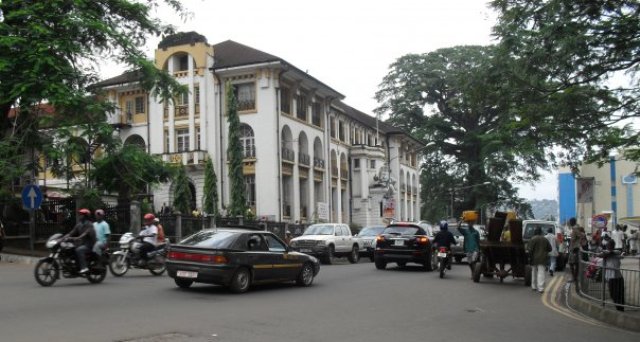Litigation can be a significant source of fiscal risks to Government, and lack of adequate disclosure could affect budgetary performance. As a result three state-owned-enterprises (SOEs) have an exposure of Le13.67 billion.
Awoko reports that the Electricity Distribution and Supply Authority (EDSA), Sierra Leone Postal Services (SALPOST) and Sierra Leone Road Transport Corporation (SLRTC) have litigation against them with total exposure of Le13.67 billion.
According to the Ministry of Finance, of this exposure, EDSA and SALPOST account for 64 percent and 30 percent, respectively, and while judgements are still pending for EDSA, rulings have already been delivered against SALPOST.
The Ministry explained in its Fiscal Strategy Statement (FSS) for fiscal year FY2022-2024 that it is concerned that in the event the plaintiffs secure court rulings in their favour, Government would have to bail out these SOEs and these could derail the implementation of the budget.
In line with the Memorandum of Economic and Financial Policies (MEFP) agreed with the International Monetary Fund (IMF) under the ECF arrangement, Government has ceased to issue guarantees for external debt contracted by both private and public sector entities.
However, Government has been providing comfort letters, which is a weak form of guarantee, to enable some Single Treasury Account Agencies (TSAs) and State-Owned enterprises secure loans from local commercial banks.
“The risks under such comfort letters are quite minimal as facilities are secured against steady stream of cash flows from the operations of these entities” the Ministry stated.
With the COVID-19 pandemic still ravaging the country’s economy, the financial position of most of the state-owned enterprises continues to remain weak with most of them reporting losses and increased liabilities.
Accordingly, some SOEs that were hitherto managing their affairs without resort to Government support, such as Sierra Airport Authority (SLAA) and SLRTC are now requiring fiscal support to cover part of their operational expenses.
Others, such as EDSA and Sierra Leone Telecommunications Services Ltd (SIERRATEL) have accumulated huge debts with local banks and arrears owed to suppliers, which pose major fiscal risk to the implementation of the National budget.
The FSS indicated that the weak performance of these SoEs could be attributed to poor business model, underinvestment, inefficient management and weak corporate governance structure.
Notwithstanding, some SOEs, such as Sierra Leone National Shipping Company (SLNSC) and the National Insurance Company (NIC), have demonstrated resilience over the years and are in the trajectory of profit making. The two state-owned commercial banks, Rokel Commercial Bank, and minority shareholders; Sierra Leone Commercial Bank are recording profits and paying dividends to Government and minority shareholders.
Also, on the decentralization side, out of 22 local councils only two, Bo City Council and Freetown City indicate potential liabilities emanating from litigations with total exposure estimated at Le370 million. These litigations are related mainly to payment of emoluments to employees.
There are also several litigations against the two state owned banks involving huge amount of monies.




 Post a comment
Post a comment









